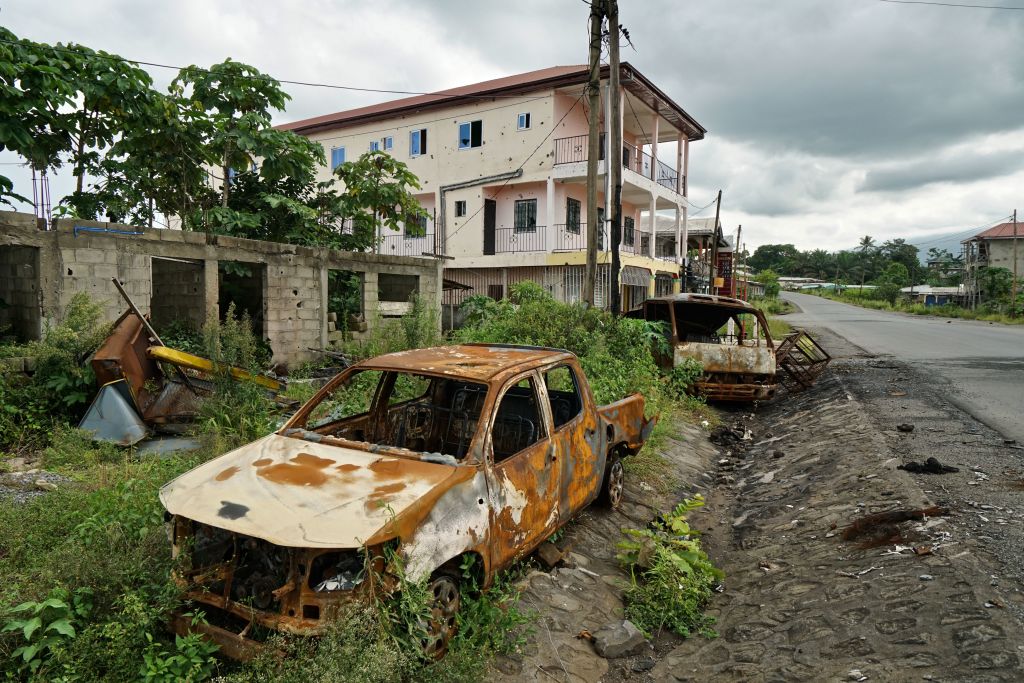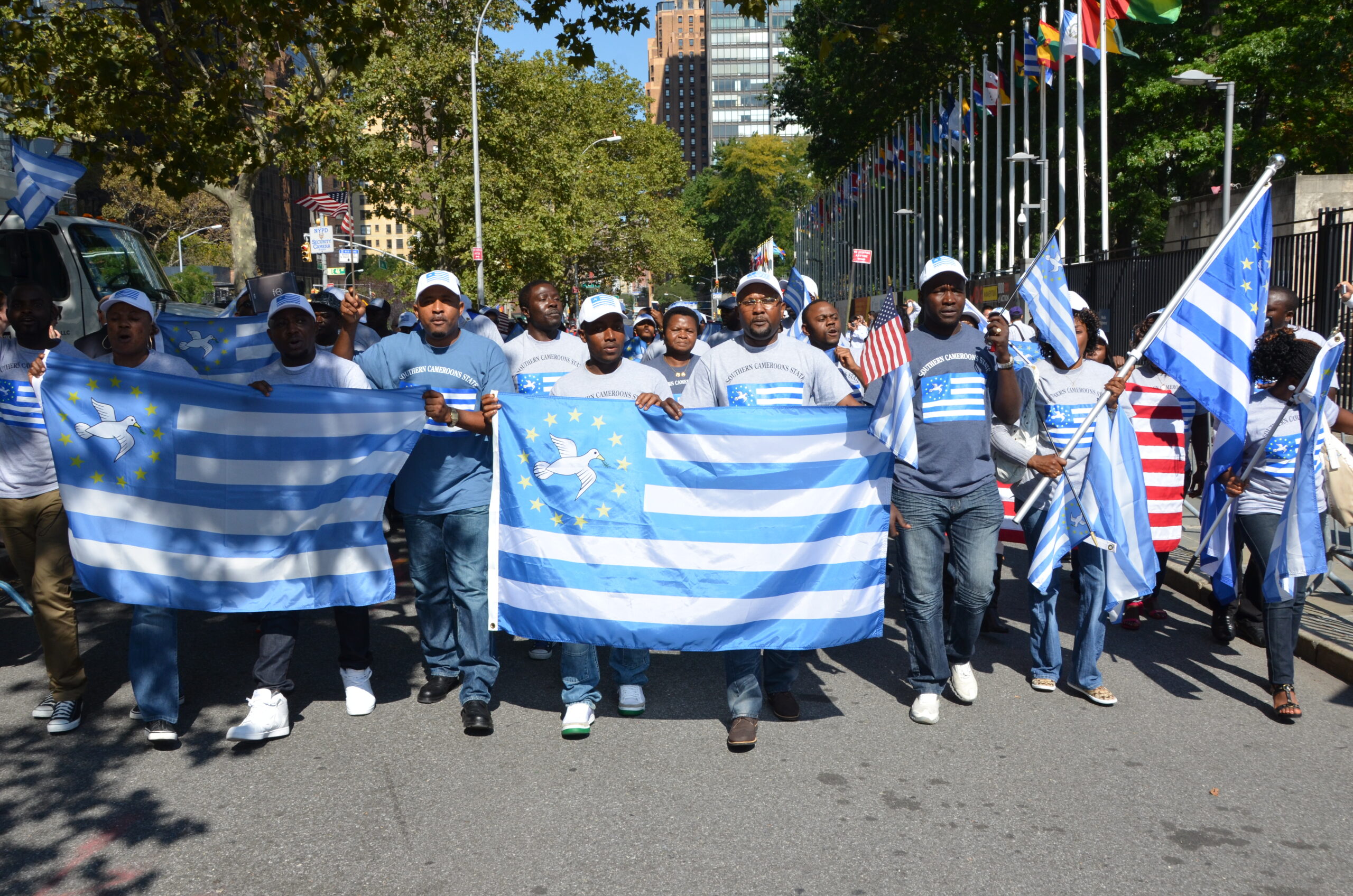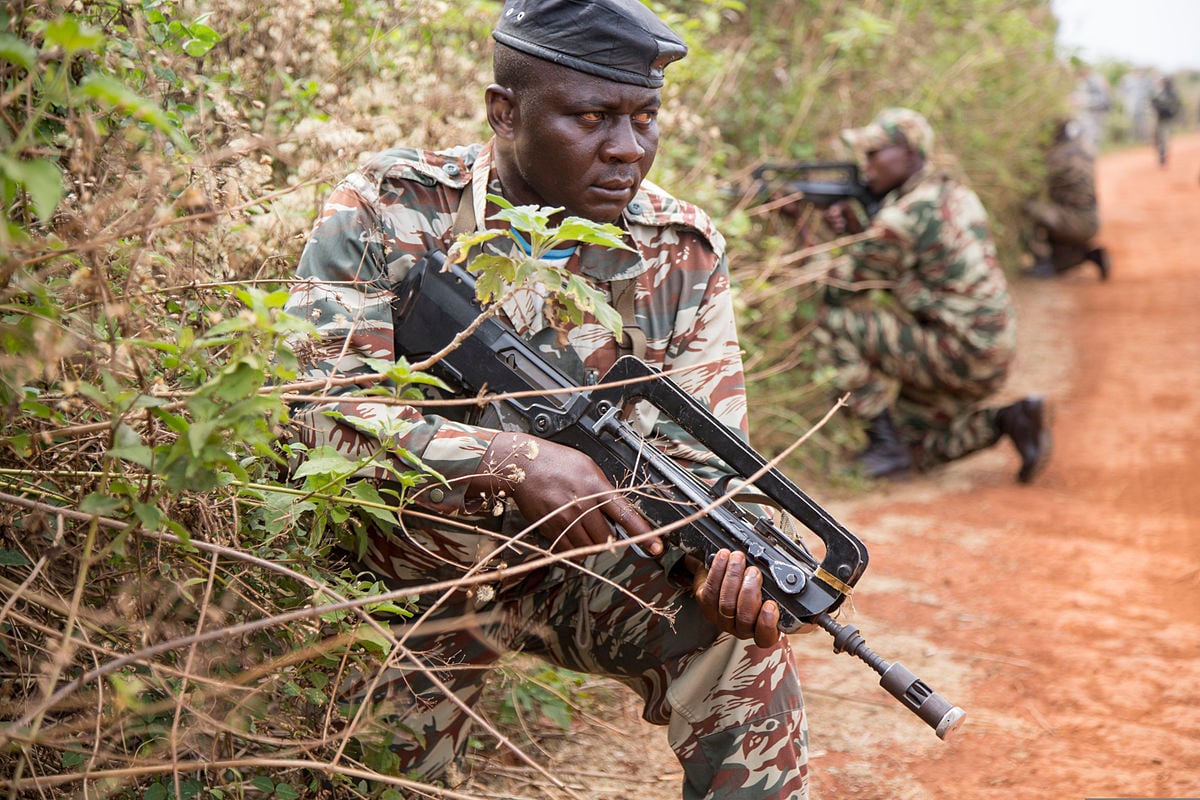On December 8, 2023, gunmen from the English-speaking part of Cameroon raided the border community of Belegete.
Belegete is a border community without a checkpoint where people move freely between southern Cameroon and eastern Nigeria. The rebels want the community to become part of their desired nation of Ambazonia. The desired nation is made up of Cameroon’s two English-speaking provinces.
Like next-door neighbours Nigeria which had to combat the Biafran rebellion of 1966 to 1970, Cameroon now has to carry that cross.
The Ambazonian insurgency has led to destruction across the provinces and the threat of more political and economic insecurity across West and Central Africa.

MILE 16, BUEA, SW CAMEROON. MAY 11 2019: A destroyed car and buildings in a small town on the main highway on May 11, 2019 near Buea. These towns were attacked by the military as suspected armed militants or protestors were known to live. This is one of many residential areas that now lie empty as residents fled to the main city of Buea or into the deep tropical forests. In 2017, separatists in Cameroon’s Anglophone territories declared an independent state of Ambazonia, an area formerly known as Southern Cameroons, and took up arms against the Cameroonian government. The violence has forced hundreds of thousands from their homes and, according to the UN, left more than a million people in need of humanitarian assistance. (Photo by Giles Clarke/UNOCHA via Getty Images)
The South West and North West provinces were once known as Southern Cameroons. It started in 1961 as an autonomous region in a federal system with the rest of Francophone Cameroon. In 1972, a new constitution got rid of that autonomy and brought the Southern Cameroons into a single state under Francophone control.
The current rebellion began in 2016 when lawyers and teachers protested what they described as years of discrimination by the Francophone government. Rebels say that President Paul Biya’s government has forced Anglophone citizens to do their schooling and interact with government officials solely in French.
President Biya’s attempt to put down protests by force sparked the fighting.
Self-styled Ambazonian leader Samuel Ikome Sako said in a 2023 statement “We believe that annexation is a crime,”
So far, 6,000 people have reportedly died in the conflict. Recently, Ambazonian violence has begun to spill over into neighbouring parts of Nigeria, where more than 70,000 Cameroonian citizens have fled for safety.
Sako has said his group is open to a negotiated settlement.

Seven years after it began, the Anglophone rebellion has made little progress. Rebel groups are small and organized along ethnic lines. They rely on donations sent from abroad and have not been able to take and hold any territory in the region. Therefore, they resort to hit-and-run raids like the one on Belegete.
Analyst, Manu Lekunze wrote recently in The Conversation
“The conflict has stalled because the rebels lack the numbers, money and cohesion to move beyond an insurgency. This makes a rebel victory impossible,”
Although Anglophone rebels might not achieve independence, their continued fighting and cross-border disruptions have the potential to degrade regional security, according to Lekunze.

Cameroon has the second-largest economy in Central Africa. It is a key point for imports, telecommunications, and transportation for its landlocked neighbours Chad, the Central African Republic, Equatorial Guinea and Gabon.
Lekunze added. “Cameroon’s strategic location between West and Central Africa means insecurity in the country could destabilize the region.”


